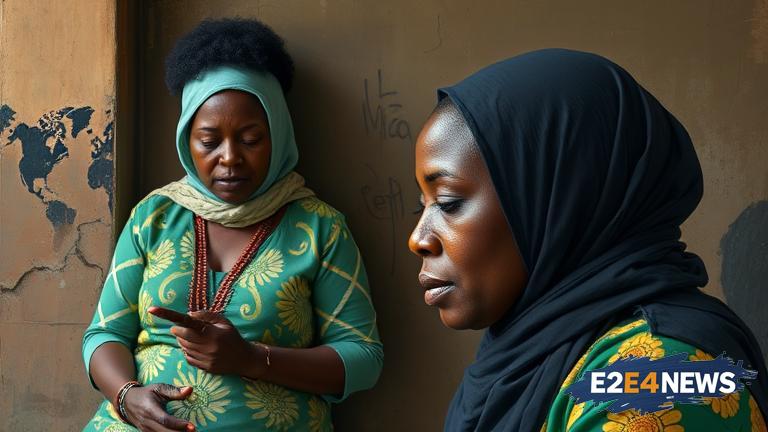A recent surge in scams has been reported, with British women being targeted by Ghanaian scammers. These scammers are using various tactics, including social engineering and emotional manipulation, to deceive their victims. The scams often involve fake online profiles, where the scammers pose as charming and wealthy individuals, gaining the trust of their targets. Once trust is established, the scammers begin to ask for money, claiming to need it for various reasons such as medical emergencies or business investments. The victims, often emotionally invested in the relationship, send money to the scammers, only to realize later that they have been deceived. The issue is complex, with roots in Ghana’s history of colonialism. During the colonial era, Ghana was a British colony, and the country’s economy and culture were heavily influenced by British rule. This legacy of colonialism has contributed to a power imbalance between the two countries, with Ghana still struggling to develop its economy and infrastructure. As a result, many Ghanaians are turning to scamming as a means of survival, targeting vulnerable individuals in wealthier countries like the UK. The scammers often use the internet and social media to reach their targets, taking advantage of the anonymity and ease of communication that these platforms provide. The British government has been criticized for not doing enough to prevent these scams, with many victims feeling that their cases are not being taken seriously. The Ghanaian government has also been accused of not doing enough to crack down on scammers, with some arguing that the country’s authorities are not taking sufficient action to prevent these crimes. The issue is not only a matter of law enforcement, but also of cultural and historical context. The legacy of colonialism has created a complex web of relationships between the UK and Ghana, with many Ghanaians feeling a sense of resentment and anger towards their former colonizers. This resentment can sometimes manifest as a desire for revenge or a need to assert power over individuals from the UK. The scams are also often fueled by a desire for wealth and status, with many Ghanaians feeling that they are entitled to a share of the wealth that was taken from them during the colonial era. The impact of these scams on the victims can be devastating, with many losing large sums of money and suffering emotional trauma. The victims often feel ashamed and embarrassed, and may be reluctant to report the crime to the authorities. The issue is not only a matter of individual cases, but also of broader societal and cultural trends. The rise of online dating and social media has created new opportunities for scammers to target vulnerable individuals. The anonymity of the internet and the ease of communication that it provides have made it easier for scammers to operate, and the lack of face-to-face interaction can make it harder for victims to detect deception. The issue is also a matter of economic inequality, with many Ghanaians feeling that they are being left behind in the global economy. The scams are a symptom of a broader problem, one that requires a comprehensive and nuanced solution. The UK and Ghanaian governments must work together to address the root causes of these scams, including poverty, lack of education, and economic inequality. The governments must also take steps to prevent these scams, including increasing awareness and education, and providing support to victims. The issue is complex, but it is not impossible to solve. With a concerted effort from governments, law enforcement, and individuals, it is possible to prevent these scams and protect vulnerable individuals from exploitation.




